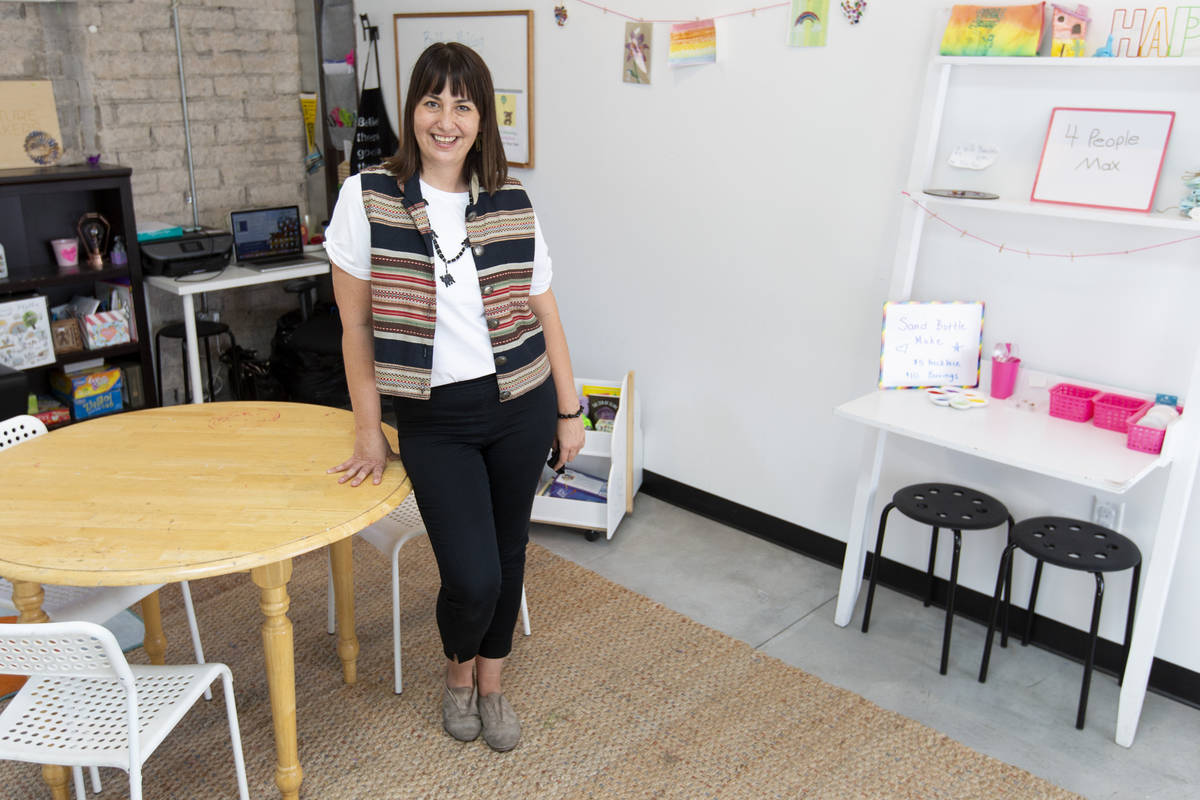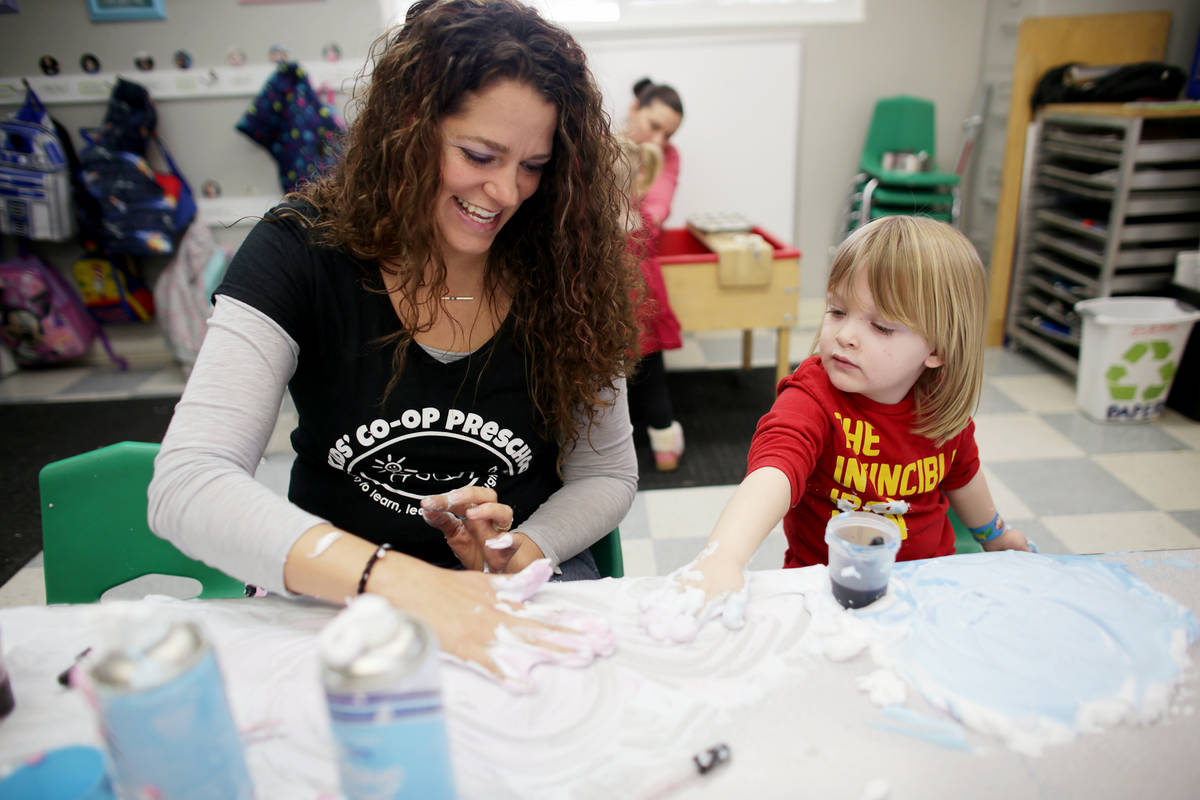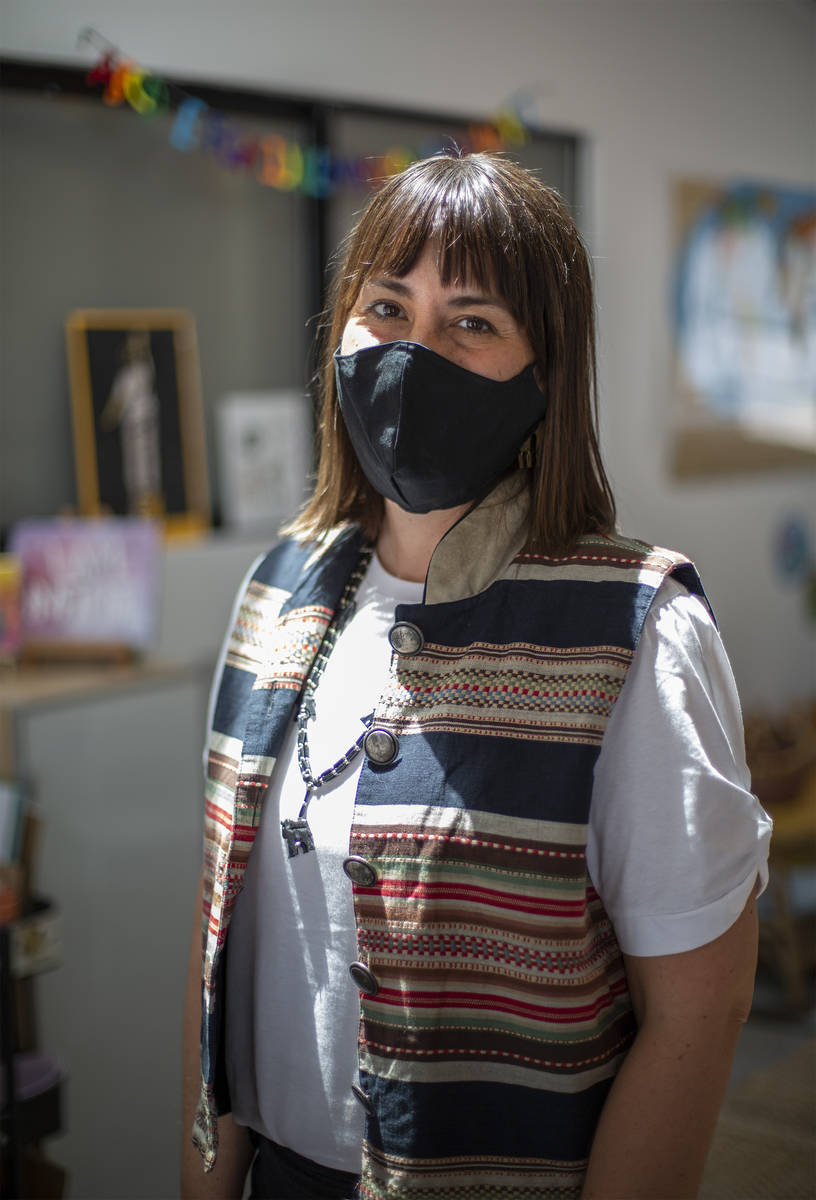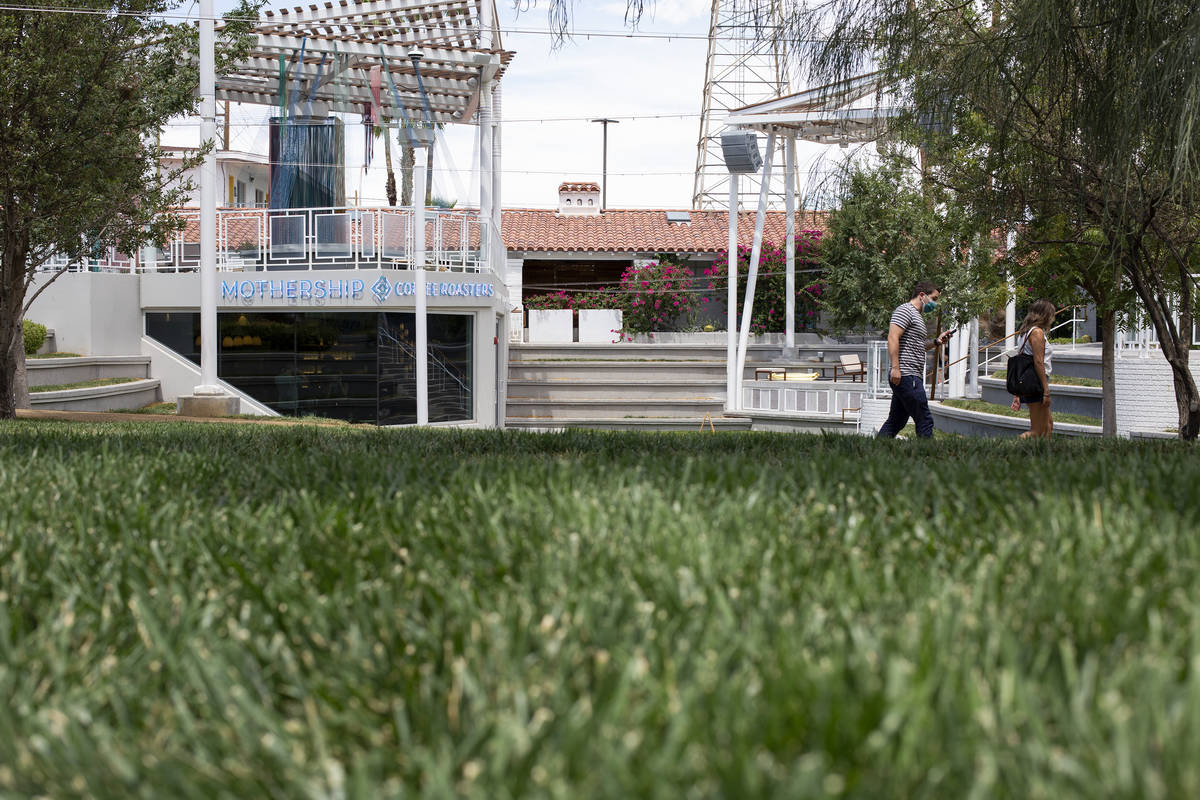Nevada parents look to microschool as alternative to traditional school
With the first day of school on the horizon, some Nevada families dissatisfied with the school options available to them this fall are turning instead to microschool options as a way to offer in-person learning with less risk of spreading COVID-19.
Described by advocates as a modern one-room schoolhouse, microschools are a cooperative arrangement between families where students of varying ages meet in small groups to take instruction either from a licensed teacher or a home-school instructor.
The model has attracted growing interest from families worried about both school safety and education, while drawing concerns that the opportunities wouldn’t be available to low-income and at-risk students.
‘A no-brainer’
“I have no interest in putting my kids back in a test scenario,” said former Nevada state Sen. Patricia Farley of her reasons to explore microschooling. “Between the education platform, the one-on-one with a teacher, the controlled social interaction and not putting my kids in harms’ way, it’s really a no-brainer.”
Farley said she gained perspective on COVID-19’s potential impact on children when a young relative contracted the virus. After listening to his mother describe the dire circumstances of his illness and recovery, she said she no longer felt comfortable sending her children back to school buildings.
Still, after the unexpected disruption to the spring quarter left her to manage distance education for her four kids and her own work running a paving company, Farley said she also realized she needed help if the fall would be remote as well.
By teaming up with other families who are also practicing social distancing, Farley said she believes they can offer responsible socialization and a more rigorous curriculum than what they could do on their own. She added that her hope is to be able to pay a licensed teacher what they would be making if they worked at a school, with classes on a to-be-determined schedule held at her home.
Farley said that under normal circumstances, she would keep her kids in public schools. She said she would allow their return if more information were available about safety and cleaning protocols in schools and the virus’s transmission and treatment.
“When it’s a life-or-death situation, the considerations are different,” she said.
Advocates on pros and cons
As microschooling gains traction nationally, concerns have been raised that it will be the domain of the wealthy who can afford to hire a private teacher and pay for curriculum, furthering equity gaps between themselves and families who can’t.
Don Soifer of the Nevada Action for School Options said that families of varying means have expressed interest in microschooling and that the model should be available to all.
“Affordability is a real factor for all Nevadans, and the ed tech community has an important opportunity to ensure that all families turning to microschooling in these pandemic and post-pandemic conditions have access to these tools,” Soifer said.
In Nevada, he said microschools are likely to remain in the realm of home schooling. But unlike home schooling, whose adherents tend to stick with the model long-term, microschooling can provide something of a temporary option during the pandemic, Soifer said. He added that there are also examples of microschool programs integrating into public charter programs, where federal protections for special education students would apply.
Kim Loomis, the former head of blended-learning programs at CCSD and now a digital learning specialist, said that in Nevada, families interested in microschooling don’t have to hire a teacher or get special approval other than what’s already established for home-schoolers, which includes submitting an intent to home-school.
Loomis added that families can find ways to share the demands of education, like offering up their houses on alternating days or volunteering to put together field trips.
The practice of bringing home-schooled kids together for trips and activities is not new, and cooperative preschools, in which parents donate time in exchange for reduced tuition, are a regular feature elsewhere in the country.
Cooperative model
Bonnie Toth, director of the Kids’ Co-Op preschool, said the school is the only one of its kind in Nevada.
Kids’ Co-Op families are expected to volunteer at the school for two to three school days a month as teachers’ aides, as well as help with school maintenance and fundraising, in exchange for a reduced tuition cost of $240 to $400 a month. The rate covers up to four days of school and pays for only the teachers’ salaries and the school’s mortgage.
Since the pandemic hit, Toth said she’s seen more families seeking out co-op schools, which tend to be small, limiting concerns about exposure. Her own school will reopen for in-person classes this fall after closing this spring, Toth said.
For people interested in adopting a co-op model, Toth said she recommends first researching how other co-ops and microschools run and then seeking out other families with shared educational goals.
The major intangible benefit to all is the parent engagement, Toth said.
“As an educator, it’s so rewarding. Early childhood is all about having home to school connections, and I get to know the families,” she said. “And as a parent, it’s been a game changer to have someone teach me about early childhood education.”
Teacher starting a school
In a suite at Fergusons Downtown, teacher Melissa Flaxman is planning to expand her Future Makers art and STEM workshops into core subjects to create a microschool program.
Flaxman said that while she already has worked with home-schoolers and “unschoolers,” she also has received interest since the pandemic hit from traditional-schooling families who are looking for more arts or physical education than what’s offered. They may also feel anxious about their safety in schools or about learning on an unfamiliar platform, she said.
She hopes to have around 10 students to start in her small space and is working on establishing pricing, as well as scholarships for students with financial need. She also would like to be able to provide 1:1 technology and, in the future, receive accreditation as a school.
Flaxman, a former special education teacher at CCSD, said microschooling lends itself well to personalized learning.
“Some families want assistance with their own home schooling, some want more hours where their kids can be with others and a teacher, and some families are just looking for another human to help them through the process,” Flaxman said. “It’s kind of my calling as an educator.”
Contact Aleksandra Appleton at 702-383-0218 or aappleton@reviewjournal.com. Follow @aleksappleton on Twitter.
































